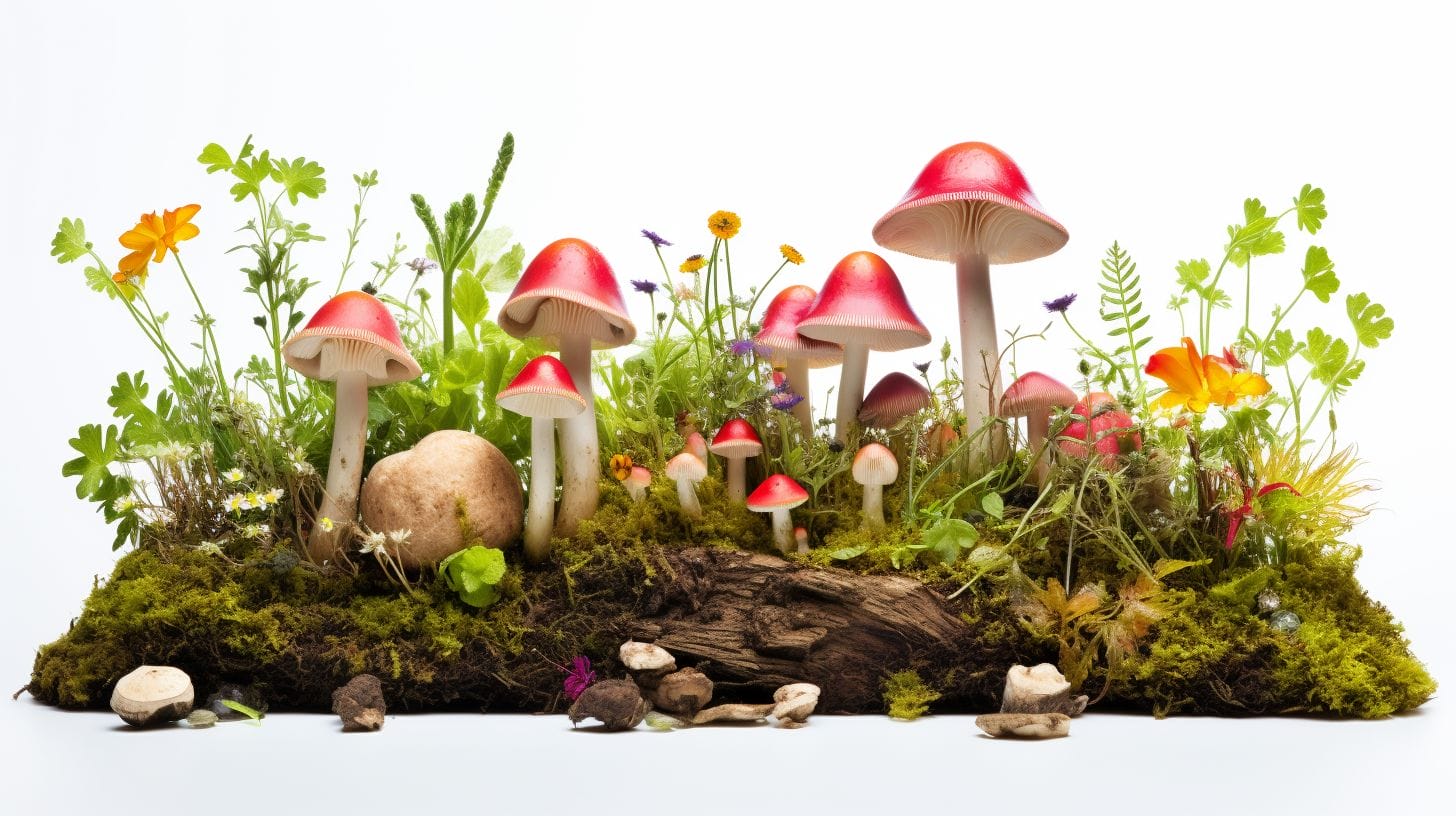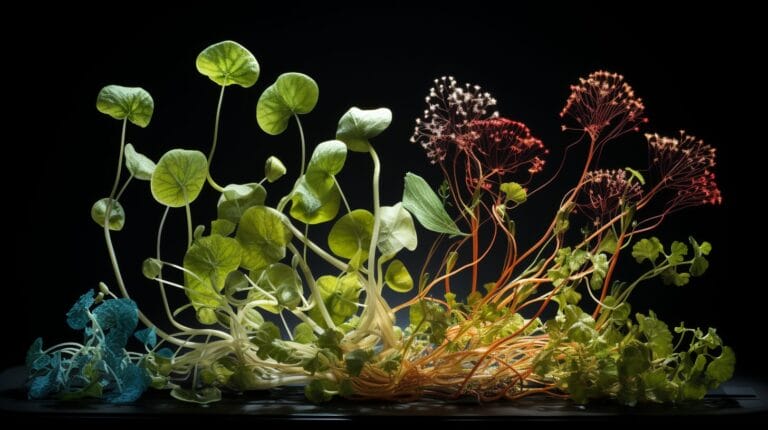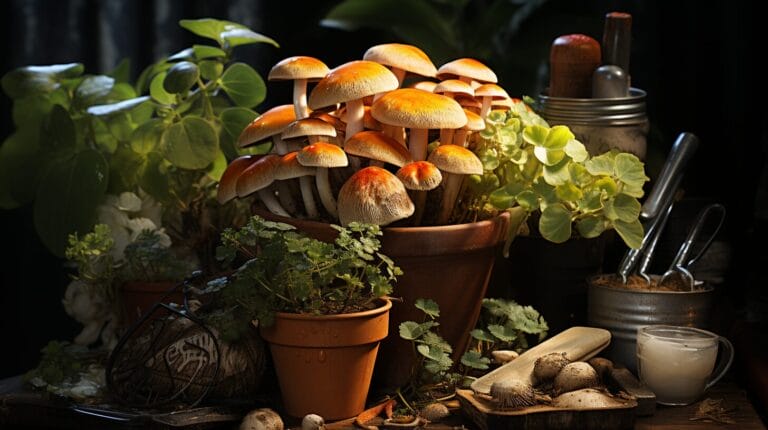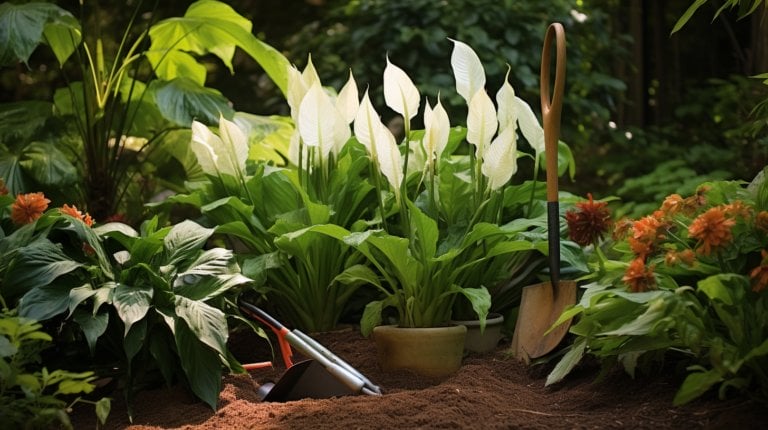Mushroom Compost Advantages and Disadvantages: A Comprehensive Guide
At first look, mushroom compost may appear to be a unique mixture. But once you get a deeper understanding of it, you realize it’s a valuable asset to any organic gardener. This specific type of compost is created by gardeners using all-too-common ingredients like hay, straw, and even manure. These materials decay into a nutrient-rich mixture, which is then pasteurized to eliminate any potentially harmful pathogens or weed seeds that can negatively affect your garden. Therefore, acquiring knowledge about “the advantages and disadvantages of mushroom compost” in this scenario is essential.
Nutrient-rich yet gentle on your soil, this hidden gem nurtures a thriving gardening journey and advocates sustainable farming practices. However, like everything, it also poses potential challenges you should prepare for before incorporating this compost into your beloved garden beds.
Captivated yet? Join us as we delve into the intriguing world of mushroom compost.
Key Takeaways
- Mushroom compost improves soil water retention, which benefits plants in hot and dry weather conditions.
- Utilizing mushroom compost is eco-friendly, recycling agricultural by-products and fostering sustainability.
- Mushroom compost enhances soil structure, permitting better root penetration and promoting healthy plant growth.
- Mushroom compost contains a mild amount of nitrogen suited for young plants and sensitive species potentially harmed by high levels of nitrogen found in other fertilizers.
Demystifying Mushroom Compost Advantages and Disadvantages
Mushroom compost, an organic material, is crafted from hay, straw, corn cobs, hulls, and chicken manure. This diverse blend initiates the composting process and is later sterilized with steam to ensure the absence of harmful pests or weed seeds.
This mixture, including SMS or SMC, spent mushroom compost or spent mushroom substrate, ferments under heat for several weeks, turning into a rich blend of proteins and minerals — a luxurious feast for plants. Additionally, this compost retains water effectively, a benefit for water-loving plants.
However, a significant downside of spent mushroom compost is its high soluble salt levels, which may harm germinating seeds or plant types sensitive to high salinity.
Watch this informative video on mushroom compost
The Advantages of Using Mushroom Compost for Your Garden
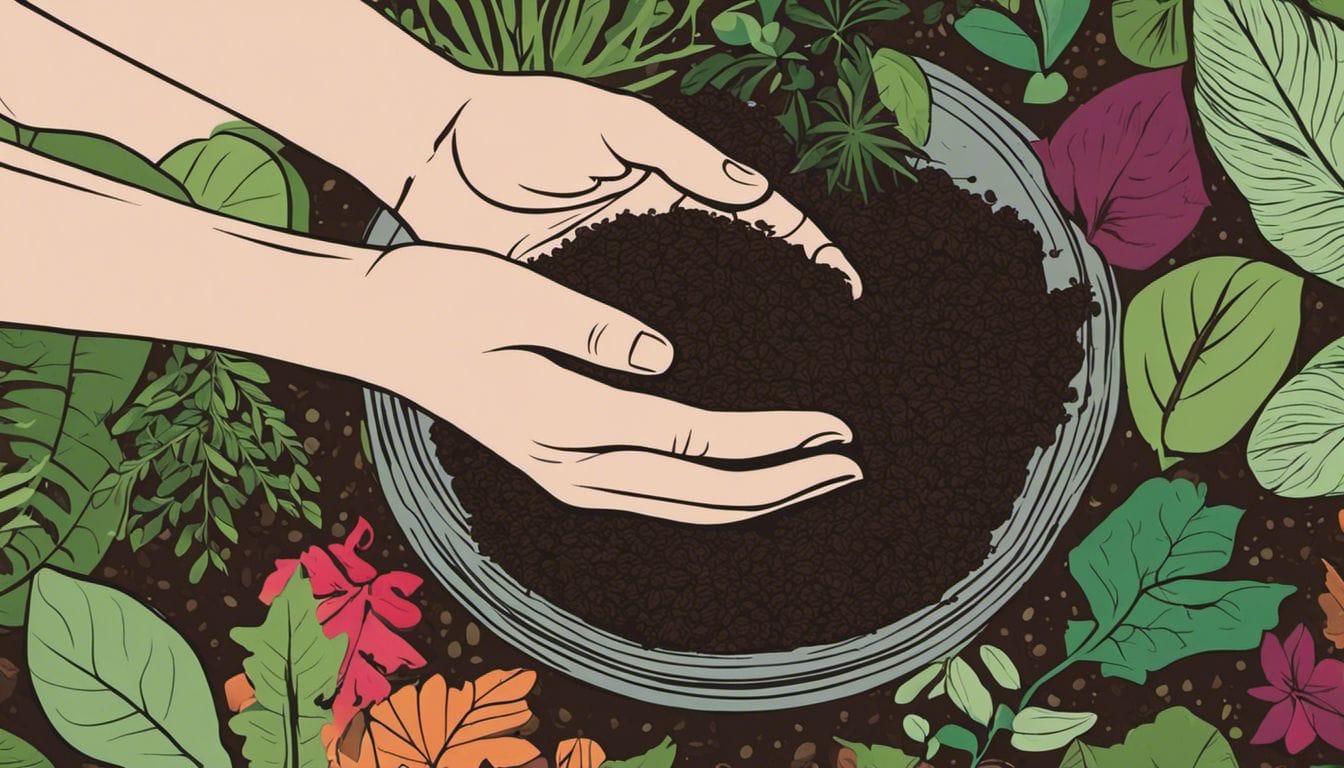
Fosters Soil Water Retention
Mushroom compost boasts excellent water retention properties, ensuring soil moisture for extended periods. This is especially beneficial during arid weather conditions, quenching your plants’ thirst. Read More
Earth-Kind
Incorporating mushroom compost as a soil amendment aligns with eco-friendly practices. It efficiently recycles agricultural by-products like hay, straw, corn cobs, and hulls, transitioning these materials from potential landfill waste to nutrient-rich compost. This contributes to waste reduction and promotes sustainable actions.
Enhances Garden Soil Structure
Mushroom compost improves soil structure by incorporating organic matter that loosens compacted soil, fostering better root penetration and healthier plant growth. Mushroom compost also enhances the quality of sandy and clay-like soils. Read More
Mild Nitrogen Content
Unlike certain manure-based composts with high nitrogen content, mushroom compost maintains a mild nitrogen level. This makes it suitable for young plants and sensitive species potentially harmed by high nitrogen levels, often found in some fertilizers. Read More
Slow-Release Fertilizer
Mushroom compost is a slow-release fertilizer, supplying sustained nutrient release to your plants. Unlike some fertilizers that release nutrients all at once, mushroom compost provides a steady nutrient supply, ideal for long-term plant health and growth.
Watch this to learn more about the advantages of mushroom compost
Enriched with Calcium
Mushroom compost, a soil amendment containing high calcium levels, is beneficial for plant growth. Calcium is critical for healthy crop development, especially for fruits and vegetables requiring abundant calcium supplies.
Effective Mulch
Utilizing mushroom compost as a mulch layer in your garden can protect the soil by maintaining moisture and limiting weed growth. The compost retains water effectively, ensuring sufficient hydration for your plants, especially during dry periods.
However, it’s crucial to account for the high salinity levels in the compost, which may harm young seeds and salt-sensitive plants. Hence, balancing these potential drawbacks while using mushroom compost as mulch is essential.
The Disadvantages of Mushroom Compost for Your Garden
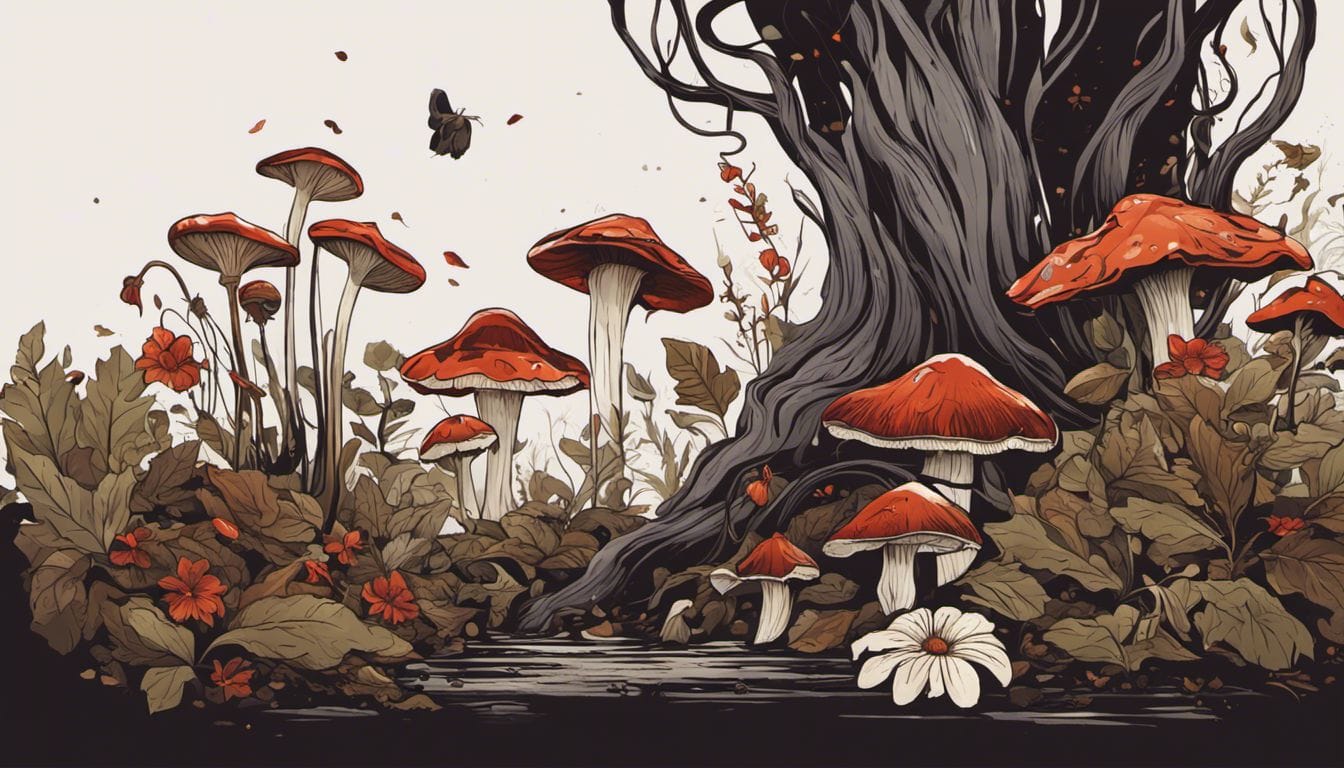
While mushroom compost carries numerous benefits for garden soil, it’s crucial to acknowledge its potential disadvantages.
Go through these disadvantages in this video
Possibly Causes Water Logging
Overusing mushroom compost or using it on plants preferring drier conditions can create waterlogging. This compost retains water for extended periods, potentially leading to root rot and fungal infections. To prevent waterlogging, use mushroom compost moderately and assess your plants’ needs before application.
High Salt Levels
One significant factor to contemplate when using mushroom compost is its high salt content, a potential drawback for plants sensitive to high salinity levels. Excessive use may cause salt burn on plants, demanding cautious usage of this compost or opting for alternate soil amendments for salt-sensitive plants.
Absence of Beneficial Microorganisms
Mushroom compost lacks beneficial microorganisms found in other compost types, which decompose organic matter and release nutrients for plants. This absence can affect the compost’s effectiveness in improving soil fertility and nutrient availability and may increase plant disease susceptibility.
Too Alkaline for Some Plants
Mushroom compost’s high pH level indicates its alkaline nature, potentially damaging for plants preferring more acidic soil. The alkaline compost can disturb the soil’s pH balance and nutrient availability for plants desiring more acidic conditions. Thus, evaluate your garden plants’ soil pH preferences before using mushroom compost.
Having explored the pros and cons of mushroom compost, why not delve into another fascinating aspect of eco-friendly gardening? Discover the best indoor worm composters to enhance your sustainable gardening practices even further!
Concluding Notes
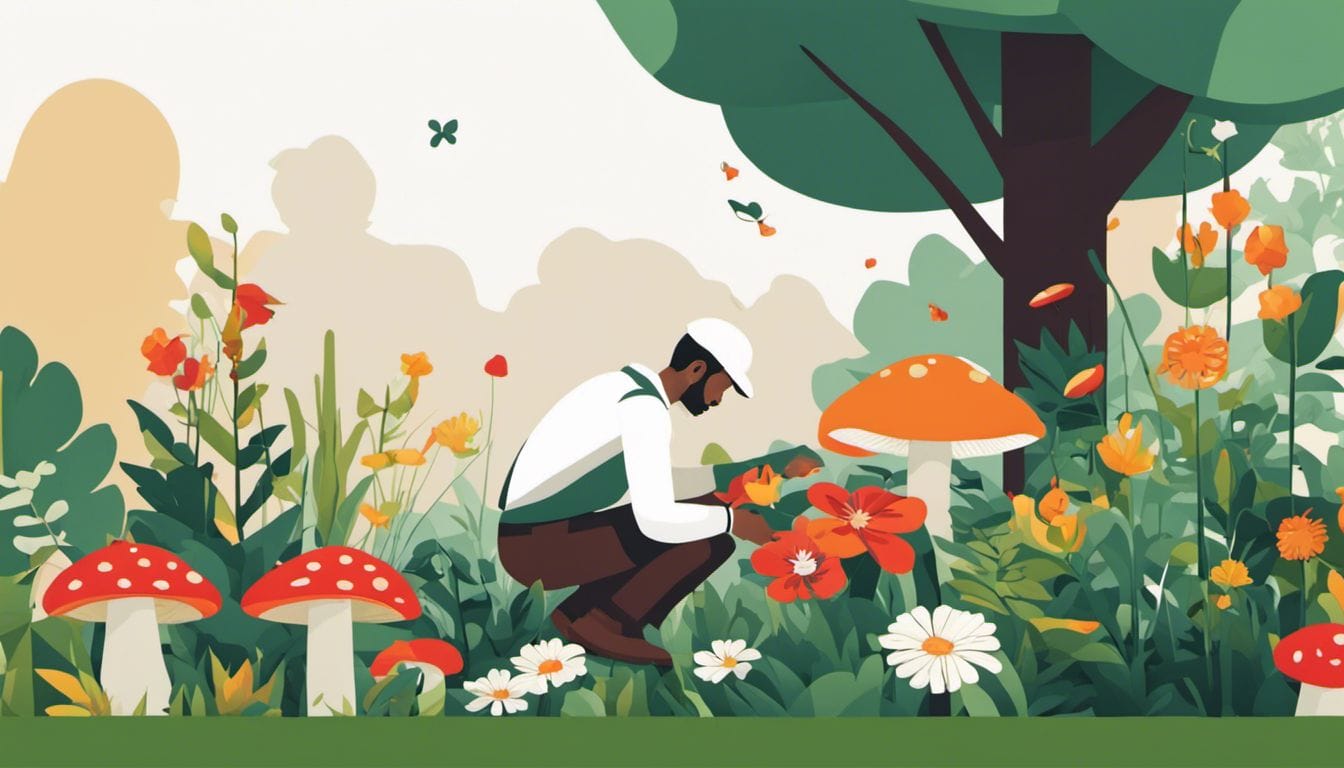
To sum it up, mushroom compost has its fair share of advantages — it improves soil water retention, enhances soil structure, and contributes to slow-release fertilizer benefits. However, a few negatives deserve mention, namely its tendencies to cause water logging, its high salt content, the absence of beneficial microorganisms, and being too alkaline for certain plants.
So, as you consider using mushroom compost in your gardening venture, measure these pros and cons to ensure the best outcomes.
Happy gardening!
FAQs
What is mushroom compost?
Mushroom compost is a specific type made from organic materials used in the mushroom farming industry.
How can I use mushroom compost in my garden?
You can use this compost as a fertilizer for garden soil, flower beds, or mulch around shrubs and flowers.
What are the advantages of using mushroom compost?
The main benefits include better soil moisture retention and good water retention properties, aiding in healthy plant growth.
Are there any drawbacks when using the mushroom compost?
Mushroom compost’s high salt content may not be suitable for all plants, especially those sensitive to salinity.
Can you make mushroom compost at home?
You can create your mushroom compost using wheat straw, chicken or horse manure, gypsum, and peat moss.
What’s the difference between regular compost and mushroom compost?
Mushroom Compost is designed for commercial use in mushroom farming. At the same time, regular compost can be homemade, utilizing kitchen waste and other natural elements over time.

